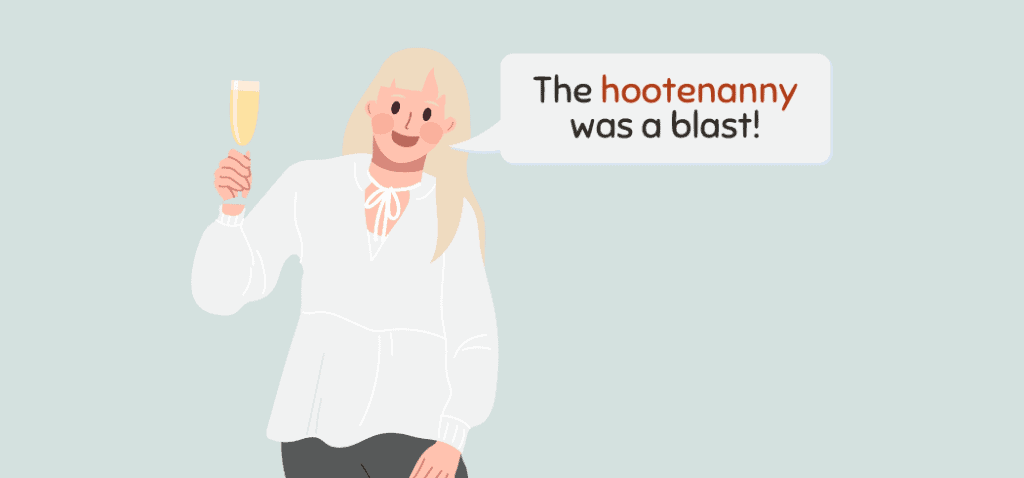The English language has a rich tapestry of words and meanings, and we’re always adding new words to the dictionaries as they gain popularity and widespread understanding. Take the word hootenanny as a great example. It doesn’t sound like it’d be an actual word, right? But it is! Now I’m going to tell you what it really means, where it came from, and how you can use it.
What Is a Hootenanny: Its Meaning Explained

Basically, a hootenanny is an informal party or gathering that sometimes has folk music and carefree dancing. These specific gatherings can range from a small and intimate affair all the way up to a larger community event.
Hootenannies are usually defined by specific characteristics like buffet-style food and a relaxed atmosphere where people come together to enjoy music and celebration with friends.
As a Newfoundlander, hootenannies are a big part of my culture. But we call them jigs and stomps.
Origin of Hootenanny
There’s no single origin for the term, as it just made its way into the English language and took root. In the early 1900s, it was once used as a placeholder word for something undefined or unspecified, much like “thingamajig” or “whatchamacallit.” But it was reserved for contexts of tools used by thieves.
Just a few years later, it was used to describe an informal get-together of folk musicians which is where it eventually became the word we use for fun events with such music.
Is Hootenanny a Bad Word?
No, hootenanny isn’t considered a bad word or offensive in any way. It’s a light-hearted, informal term that we use to describe a particular type of social gathering and is generally inoffensive and appropriate in a wide range of contexts.
How to Pronounce Hootenanny
Hootenanny is meant to be pronounced as hoo-tuh-na-nee. Put the stress on the first syllable, and the rest of the syllables are short.
Synonyms for Hootenanny
Any of these words should work in place of the word “hootenanny” in pretty much any context.
- Hoedown
- Shindig
- Bash
- Jamboree
- Gathering
- Celebration
- Party
Hootenanny Examples in a Sentence

- Our small town came together for a hootenanny at the local community center and raised thousands of dollars for the new park.
- Musicians from all over the province gathered for an impromptu hootenanny in the park.
- We expected a giant event, but it was just a regular hootenanny with a few dozen people.
- We enjoyed a lively hootenanny on the beach in Cuba, with bonfires, dancing and good food.
- Kayla invited her friends and neighbors to a backyard hootenanny to celebrate the summer break from school.
- The annual town hootenanny attracted a diverse crowd of music lovers and performers from all over the Maritimes.
- We didn’t expect the Southern wedding to be more of a grassroots backyard hootenanny, but it was a lot of fun.
Are You Ready for a Hootenanny?
I know it sounds like a made-up word, and once upon a time, it sort of was. But hootenanny has claimed its place in the English language, and you use it to describe any kind of relaxed and fun gathering with music, usually folk, and dancing.
